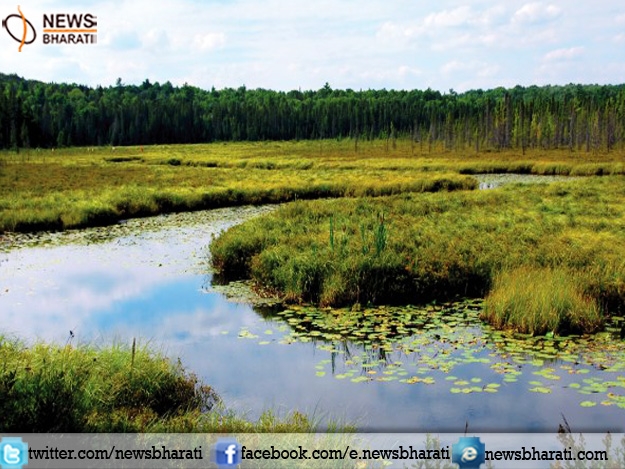Supreme Court asks Centre for their serious attention on wetland issue
Total Views |
New Delhi, October 5: Environment has often been disregarded of attention by the government, not only in India but overseas as well. Wetlands issue has come up in front of the government in the light of its disappearance. The Supreme Court on Wednesday expressed concern over the disappearance of wetlands in the country and told the government that this was an important issue which deserved very serious attention.

A wetland is a marshy land area like swamps or mangroves that has water either permanently or seasonally and which could also have a distinct ecosystem. A bench headed by Justice Madan B Lokur asked the Centre to inform it about the status of funds disbursed by them to the states for preservation of wetlands and also about how these have been spent by the states. “This issue deserves much serious attention. If there are no wetlands left, it will affect agriculture and several other things. It is a very, very important issue,” the bench, also comprising Justices S Abdul Nazeer and Deepak Gupta, told the counsel appearing for the Centre.
The government informed the top court that the Wetlands (Conservation and Management) Rules, 2017 have been notified and it would replace the earlier set of guidelines which came into effect in 2010. The bench also referred to its earlier order and said that 2,01,503 wetlands in the country would continue to be protected by the government.
The top court had earlier expressed concern over a huge expenditure of Rs 945.95 crore on various works related to wetlands and commented that the activities shown were extremely general in nature. It had also directed various high courts to monitor the management of 26 sites identified in the Ramsar Convention of 1971 on wetlands, till there was some visible improvement as these were international heritage. The Ramsar Convention on Wetlands of International Importance is an international treaty for conservation and sustainable use of wetlands. It is named after the city of Ramsar in Iran, where the Convention was signed in 1971.